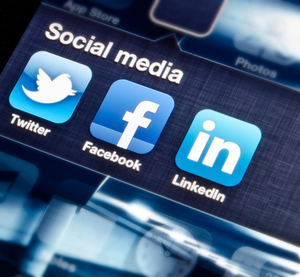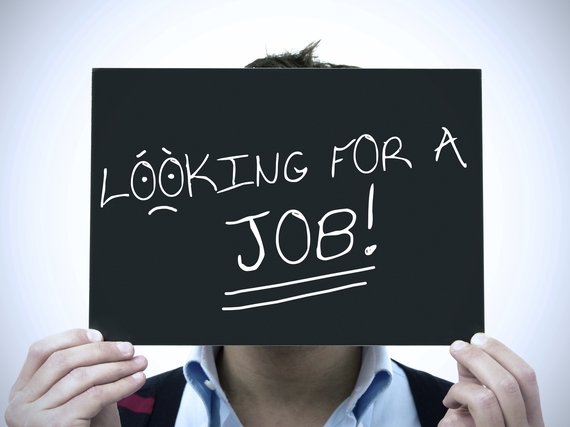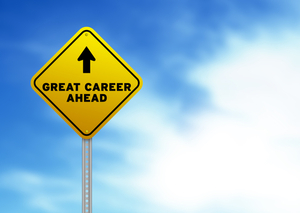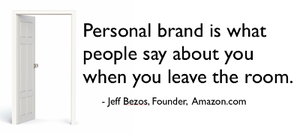You've probably heard the words "You're Fired!" many times on television, and for a certain real estate tycoon, it's become somewhat of a personal trademark.
But outside of the TV Boardroom, you're more likely to hear that you've been "down-sized; right-sized, laid off or RIF'd."
Regardless of what words are actually used, the message is still the same: you're not going to work tomorrow.
Given the average tenure in corporate America, it's almost as certain as death and taxes that at some point in your career you will be between jobs (meaning "in transition").
If you've never been laid off, consider yourself fortunate, but don't naively go about your day thinking that it won't happen to you. Mergers, acquisitions and economic downturns can result in your position being eliminated in the blink of an eye. My clients who found themselves in a job search after an acquisition would certainly attest to that.
Even if you're not a long-tenured corporate veteran, you might be interested to know that it's been stated that today's college graduates will have approximately nine jobs over the course of their employment - and three of those job changes will also be career changes.
Not all of those job changes will be voluntary, so it's critical to develop the skills that will help you to prepare for the day that you find yourself in transition.
I've been in transition, and I've also had the privilege of helping a number of people while they were in search of their next opportunity. A general consensus of what folks wished that they would have done differently while they were "in-seat," has emerged from those experiences.
Summarizing that feedback, here are the three things you need to be doing now - before you find yourself in transition or beginning a job search.
1. Cultivate Your Network
Have you been too busy to attend an event or meet someone for breakfast or coffee? Have many of your career "godfathers" and "godmothers" retired? Has your network gone stale?
If you answered yes to any of these questions, it's time to stop making excuses and get out there and connect with people in-person. In addition to building relationships, you'll get to exercise those "social muscles" that you will need if you do find yourself in transition someday. Besides, you never know what valuable information you'll learn by being "out there."
You've heard people say that opportunity just "found" them because they were in the right place at the right time. It's pretty safe to say that you won't be at "the right place" if you never leave your desk.
And while you're "out there," remember that people are basically decent and generally appreciate being asked for advice. So take the opportunity to ask for advice, whether it be about your career or industry best-practices. But don't just be a "taker" - be sure to ask how you can help the other person as well. And when you get back to your desk, connect with that person on LinkedIn if you weren't already connected.
Which brings me to the second observation.
2. Be Social
If you've been reluctant to really embrace LinkedIn because you think that it's just "Facebook for business people" you are missing out on a huge opportunity. 
If someone wants background information about you in advance of a meeting or conversation, they will check out your LinkedIn profile. A high quality profile will be your opportunity to either make, or reinforce, a good first impression.
A solid LinkedIn profile makes for better conversations and it also allows you to be found by others, including potential buyers, clients and employers. Also include a recent professional photo because it's been proven that a photo helps to build feelings of trust as well as garnering you more profile views. Besides, people don't really want to do business with "ghost person."
Social networks also allow you to connect with people that you might otherwise never have had the chance to connect with. If someone you know is connected to someone you'd like to know, you have a great opportunity to ask for an introduction.
Do not underestimate the power of social media in general, and LinkedIn in particular. Since you're likely reading this on Social Media, you've already got your toes in the water, so if you haven't already, dive in.
3. Build Your Personal Brand
Your LinkedIn profile is only one part of what constitutes your personal brand. It should be consistent with "who you are" even more so than "what you do."
You are not your "title." Who you are transcends what you do.
How you conduct yourself in the course of your interactions is ultimately going to define your personal brand. Most of the time, it's the simple things that that makes the biggest and most lasting impression. So, be punctual for meetings; dress appropriately; don't interrupt; do some homework on the other person before you meet (like visit their LinkedIn profile); say thank you afterwards. Nothing earth-shattering there - but so often overlooked and extremely detrimental to building a (positive) personal brand.
Be sure to follow-up with the people that you meet and let them know if an introduction they made on your behalf was valuable and what you did to add value in that conversation. (You did add value, right?) If you were given advice, let the other person know how you applied that advice. It will be appreciated.
When someone makes an introduction on your behalf, they are taking the reputational risk that you will represent them well. Don't mess that up!
Follow-through is all about doing what you said you were going to do. If you tell someone that you're going do something, by all means DO IT and please do it in a timely fashion. What I'm talking about now is your reputational risk and how this impacts your personal brand.
It's been said that your network is like a savings account - you need to make deposits before you can make withdrawals. Start saving for that rainy day now.
This article originally was originally published on LinkedIn Pulse.
About the Author:
Dave Bookbinder is a Director of Valuation Services at GBQ Consulting where he helps his clients with the valuation of businesses, intellectual property, and complex financial instruments. More than a valuation expert, Dave is a proactive problem solver who consults with companies of all sizes, both privately held and publicly-traded. Dave strives to lend his business experiences to help people with a variety of matters. For more about Dave, visit his LinkedIn profile.
Thanks for reading - If you enjoyed the post, please click the thumbs up icon above and let me know! (and if you like it, why not share it?)
Connect with Dave on LinkedIn and follow Dave on Twitter @dbookbinder



